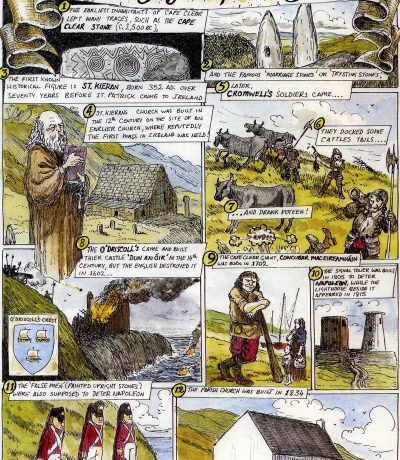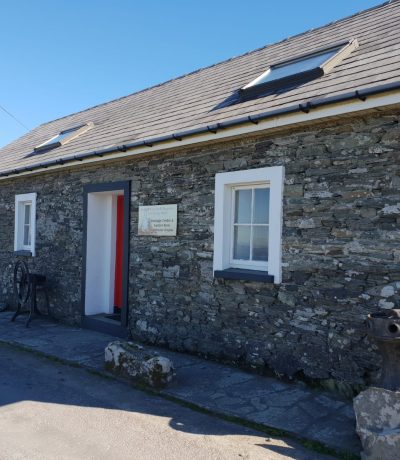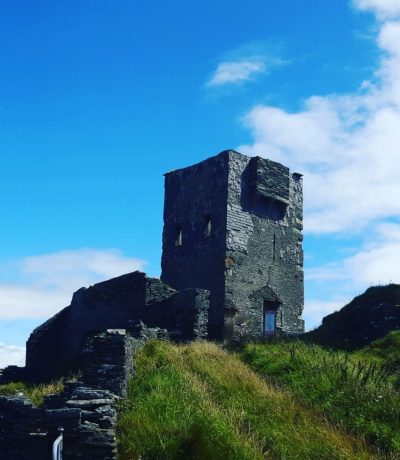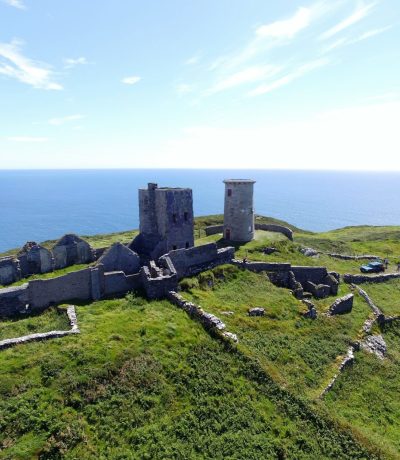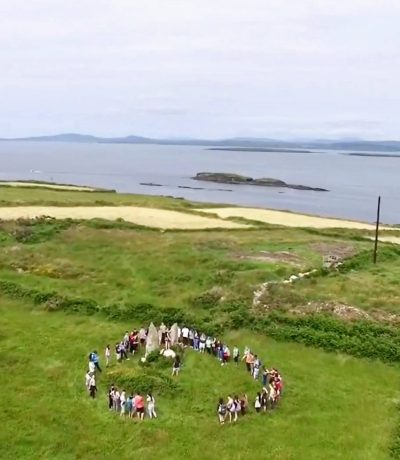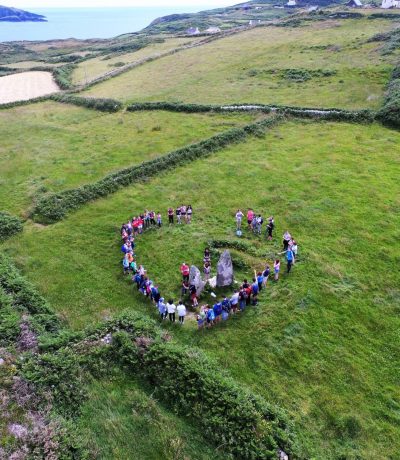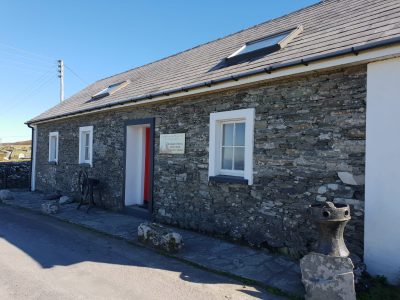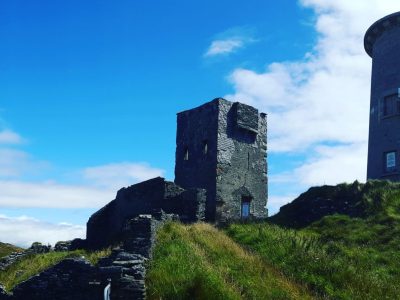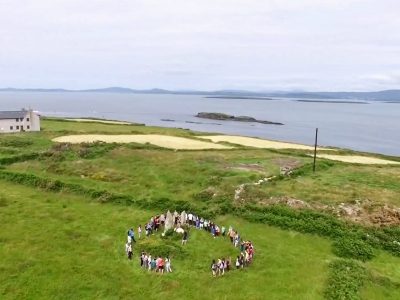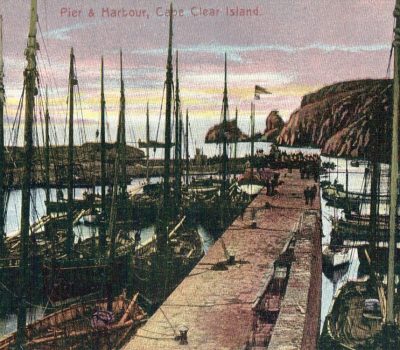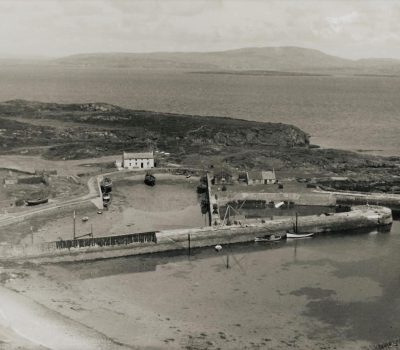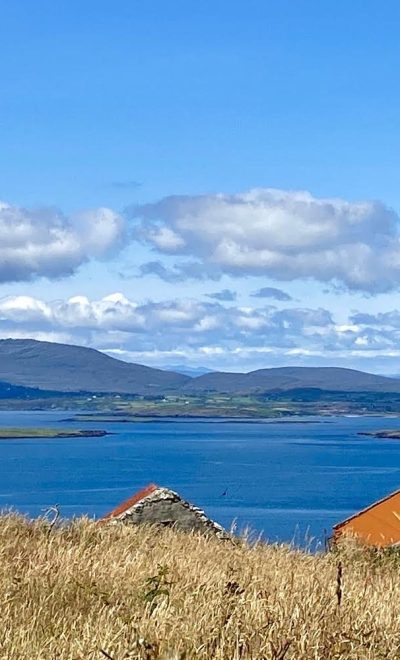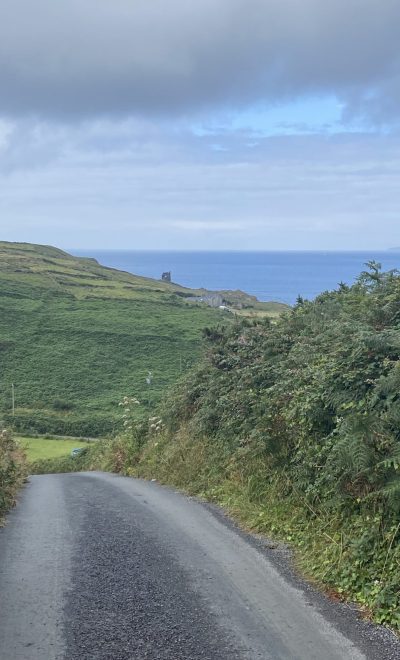History of Cape Clear Island
Discover our island’s ancient history
History of Cape Clear Island
Stories that have survived through the ages
Scéalta a mhaireann go fóill
The Cape Clear Island and Fastnet Heritage Centre vividly illustrates the history of Cape Clear using an astonishing array of artifacts from prehistory and Medieval times up to the 20th century.
The earliest relic of civilisation on the island is the Cape Clear Stone, the most-enigmatic archaeological discovery on any of Ireland’s islands. Found in 1874, the stone features spiral and zig-zag carvings that are the hallmark of the 5,000-year-old Boyne Valley Civilisation in Newgrange, Co. Meath. Neolithic relics such as this are not normally found in Munster, much less on an island eight miles off the coast of West Cork, a fact that continues to leave archaeologists mystified to this day.
The Bronze Age turned Cape Clear into a hub for trade between West Cork, then known for its reserves of copper, and the tin mines of Cornwall on the UK’s southwest coast. Indeed, a 12th century stone church standing at Cape Clear’s North Harbour takes its name from St Ciarán, the patron saint of the island. Also known as St Piran, he is the patron saint of Cornwall.
European cultures have long had an impact on the culture of the island and nearby mainland areas.
Spanish and French fishermen have operated in waters around Cape Clear since the 17th century, an arrangement that continues through the European Union’s Common Fisheries Policy. Such is the strength of these connections, a small inlet between Cape Clear Island and Baltimore harbour is known historically as Spanish Island.
The fishing industry was the main driver of the Islands economy. In the late 17th Century, Cape Clear was home to three fish palaces, where train oil was extracted from pilchards, to be used in lamps. A 50-year fishing boom from the 1880s lead to the construction of the two-storey slate houses which are numerous on the Island.
The seafaring O’Driscoll Clan ruled the area for 600 years, a reign that ended following an attack on their island fortress, Dun an Óir in 1603. Some volumes of the O’Driscoll Memorial Archive’s are kept on Cape Clear and the island hosts an annual memorial event which attracts huge numbers of O’Driscolls each year.
The area is home to two lighthouses. The first, built in 1818 on the highest point of Cape Clear, was decommissioned after its tendency to become fog bound led to the sinking of a steamship in 1847. The lighthouse was then relocated to Fastnet, an islet which takes its name from an Old Norse phrase meaning, ‘Sharp Toothed Rock’. The 54-metre cast-iron replacement took four years to complete.
There has always been a great seafaring tradition on Cape Clear with islanders famous for their bravery in rescuing shipwrecked sailors off the Cork coast. Among a litany of famous incidents was the rescue of the crew of The Nestorian in 1917, an action so daring it was later dubbed ‘The Greatest Film Never Made’.
In 1939, the unarmed Hazelside was sailing close to Fastnet when it became one of the first ships to be torpedoed and sunk by a U-boat. The master and 10 crew members were lost and another 23 crew were picked up by the Irish fishing boat St. Ultan and landed at Schull. Many islanders risked their lives as merchant sea men during World War II. A plaque commemorating all islanders lost at sea in the 19th century can be viewed on North Harbour.


